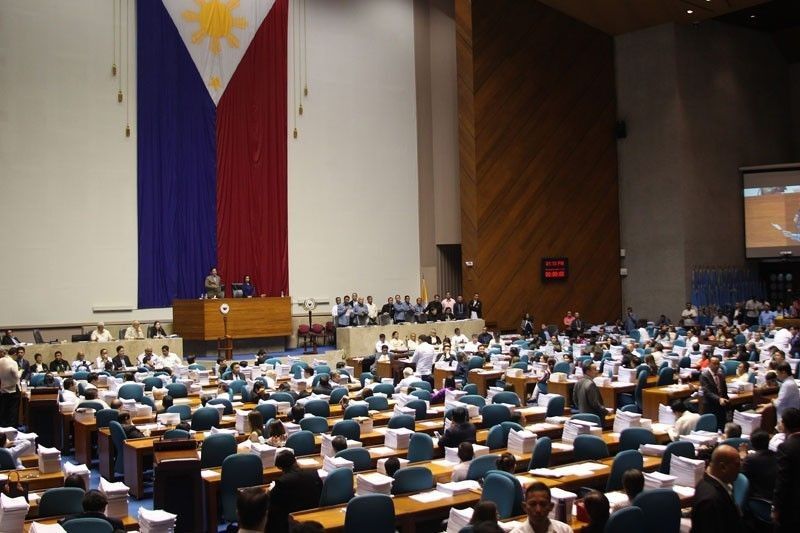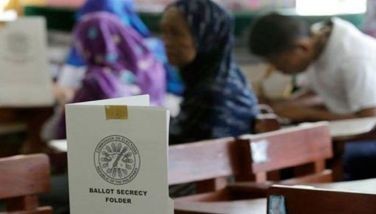Congress to expand government wiretap powers

MANILA, Philippines — The Senate committee on national defense and security is finalizing a draft anti-terrorism bill that includes giving authorities wider latitude in conducting surveillance and eavesdropping on suspected enemies of the state.
Sen. Panfilo Lacson, chairman of the committee, said yesterday the panel was already consolidating the inputs made by security officials and other resource persons to come up with a final version that will be presented in plenary “ASAP” for deliberations and approval.
The committee held last week a hearing on Senate Bill 21, which seeks to plug loopholes in Republic Act 9372 or the Human Security Act of 2007, which is seen to be a toothless anti-terrorism law compared to similar statutes in other countries.
With the Senate supporting the bill, the measure is expected to be approved. The “super majority” in the House of Representatives is seen to approve its own version.
Lacson said the Senate bill aims to give the government an effective legal framework in fighting to terrorism.
“This measure seeks to provide our law enforcement with enough tools to conduct investigations that would enable them to prevent terrorist attacks before they happen, or in case they are unable to do so, at least bring the perpetrators to justice,” Lacson said in his bill.
Defense Secretary Delfin Lorenzana on Thursday told “The Chiefs” on Cignal TV’s One News that a new anti-terrorism law should extend the legally sanctioned wiretapping of suspects to a period of up to 90 days. He said this period was reasonable for the complicated task.
RA 9372 provides for an initial period of 30 days, with one extension of up to 30 days.
The Human Security Act allows wiretapping, with the consent of the Court of Appeals (CA), only for terror suspects, and expressly prohibits it in the case of lawyer-client communication, between doctor and patient, and between journalists and their sources.
The senator told reporters on Tuesday there was an urgency in passing the proposal given the resurgence of terror-related incidents.
He said he will press his colleagues in the House of Representatives to pass a counterpart measure so Congress can approve the bill for enactment into law.
Lacson’s bill touches on provisions of Republic Act 4200 or the Anti-Wiretapping Law and Republic Act 10168 or the Terrorism Financing Prevention and Suppression Act.
The senator also earlier filed Senate Bill 22 or the proposed Expanded Anti-Wiretapping Act, which seeks to include other heinous crimes not covered by the 54-year-old RA 4200.
Under the proposed anti-terrorism bill, military personnel are allowed to request for authority not only from the CA but from regional trial courts (RTC) “to secretly wiretap, overhear, and listen to, intercept, screen, read, surveil, and record and collect, with the use of any mode, form, kind or type of electronic, mechanical or other equipment or device or technology” data, information or messages of members of judicially declared terrorist organizations.
Records of the application as well as documents submitted to the CA or the concerned RTC are considered classified, according to the bill.
The authorization should specify the persons to be eavesdropped; and the telephone number or electronic transmission system that will be monitored.
The measure also provides the duration of wiretapping shall not exceed 60 days, with the option of continuing the surveillance by a “non-extendible period” not exceeding 30 days.
All materials, data and information gathered from the wiretapping are to be deposited before the court that authorized the surveillance.
If no case is filed within 30 days after the lapse of the authorized wiretapping, the police, military or law enforcement official who sought the authority is mandated to inform the person subjected to surveillance. The concerned official who will not comply will be penalized, including possible imprisonment.
In the event of an actual or imminent terror attack, the Anti-Terrorism Council may compel telecommunications companies to immediately produce all call, text and internet records of terror suspects.
‘Subversion law will not be abused’
Interior Secretary Eduardo Año yesterday said should it be reinstated by Congress, there would be safeguards to ensure that there would be no abuses to the anti-subversion law, whose revival was sought to fight the supposed communist “indoctrination” of youths in schools and universities.
Año tried to allay fears that the revival of the anti-subversion law would lead to a crackdown on the legitimate opposition.
“There are no problems with critics, dissenting groups and political opposition. They aren’t communists, no problem,” he said during an ambush interview.
The retired general said that the proposal would only declare illegal the Communist Party of the Philippines (CPP), its armed wing New People’s Army (NPA) and allied groups.
The CPP and NPA have been declared as terrorist groups by President Duterte. The Department of Justice last year filed a petition before the Manila Regional Trial Court seeking to declare the communist group as a terrorist organization.
However, Lorenzana has already said that the law could cover supposed front organizations of the CPP, including the “legal Left” such as the Makabayan bloc of party-list organizations.
Año noted it is up to lawmakers to make sure there will be provisions in the law that would distinguish the CPP from dissenting groups, parties of the Left and activists.
He added that supposed members of the CPP are already lobbying before congressmen and senators opposing the revival of the anti-subversion law.
Still, Año said that he already has the support of some lawmakers but refused to name who they were.
Año also declined to name the lawmakers that could sponsor the bill for the revival of the law, which is being strongly opposed by several sectors.
The Philippine National Police (PNP) backed the proposal, saying it was high time for the anti-subversion law’s revival.
Maj. Gen. Benigno Durana, director for police and community relations, said the controversial law should be reinstated to quell the threat of communist terrorism to the country’s security.
Durana likened the CPP and its allied groups to termites during a Senate hearing on the alleged recruitment of student minors to leftist organizations.
“They will continue to use the law to circumvent or violate the law. Using democracy to destroy democracy,” he said during his testimony.
PNP chief General Oscar Albayalde said the revival of the law needs further study to ensure that it will not be used to camouflage human rights abuses.
Still, Albayalde said they support its revival as this would augment President Duterte’s Executive Order 70 that aims to end the decades-long communist insurgency in the country.
Informants on CPP now millionaires
As this developed, five tipsters whose information led to the neutralization of key CPP-NPA members became instant millionaires yesterday courtesy of the government reward system against known enemies of the state.
The faces of the five tipsters were covered to hide their real identities while receiving the cash reward out of the P14,250,000 total cash handed to them by the Armed Forces of the Philippines in yesterday’s event led by AFP chief Gen. Benjamin Madrigal held at Camp Aguinaldo.
“Through the information shared by these tipsters, five CPP-NPA leaders were either killed or arrested in law enforcement operations conducted by the AFP in coordination with the Philippine National Police,” Madrigal said.
Madrigal also declined to name the key CPP-NPA personalities that government security forces have already neutralized.
However, he said all five were directly involved in heinous and atrocious crimes against the Filipino people.
Despite this development, Madrigal admitted that much has to be done to finish the country’s insurgency problem stressing that the military is just part of the solution in attaining total peace.
“While the AFP sustains its focused military operations against the communists and other local and foreign terrorists, we call on our people to help us. The fight against terrorism and the attainment of lasting peace for our country are a shared responsibility of each and every Filipino,” Madrigal said. – With Romina Cabrera, Jaime Laude
- Latest
- Trending
































